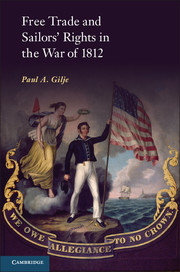Paul Gilje is a George Lynn Cross Research Professor in the Department of History at the University of Oklahoma. He holds an MA and PhD from Brown University and has held fellowships at Johns Hopkins University and Washington University, St Louis. Gilje is the author of The Road to Mobocracy: Popular Disorder in New York City, 1763–1834; Riots in America; Liberty on the Waterfront: Society and Culture of the American Maritime World in the Age of Revolution, 1750–1850; and The Making of the American Republic, 1763–1815. Liberty on the Waterfront received the 2004 Society for Historians of the Early American Republic Best Book Prize and the 2004 North American Society for Oceanic History John Lyman Book Award in the category of United States Maritime History. Professor Gilje has organized an adult civics program in the state of Oklahoma, consulted for museums, edited several books and lectured widely in Europe and America. Throughout his career he has a sustained interest in how common people have been affected by the larger events of history.




